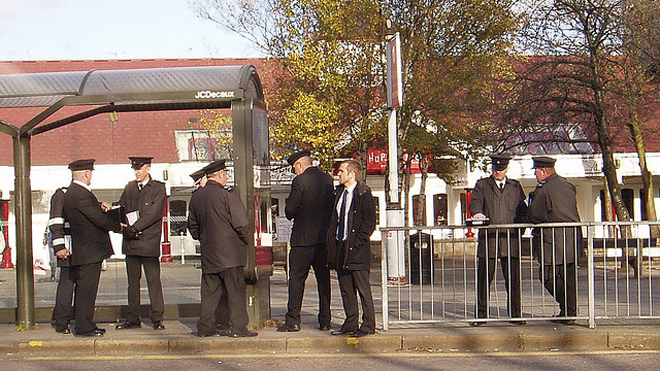Next month Qatar has a chance to put its disputed record on workers’ rights to the test
When Zaha Hadid, architect of Qatar’s under-construction Al Wakrah football stadium, lashed out at the BBC last month, it exposed the increasingly frayed narrative thread of the 2022 World Cup and its controversial hosts. Clumsily accused on the Today programme of presiding over 1,200 deaths just on her stadium, Hadid railed against the line of questioning and insisted “there’s not a single problem in our stadium in Qatar…check your facts.” The BBC, apologising, kept its nerve enough to say “we are happy to accept there is no evidence of deaths at the main stadium site,” which is not quite the same as taking her word for it.
This, however, was sound and fury that signified nothing. Had Sarah Montague asked the right question – how do you feel about your involvement in a country which demonstrably allows the abuse of workers and has allowed hundreds to die since it won the right to host the tournament your stadium will be used in? – Hadid could still have retreated to her official position: no workers have died on my stadium, or on any other stadium: “Check your facts.”
Check your facts. The problem with this counter attack is that it asks the impossible. Qatar’s increasingly secretive approach to its problems means that checking whether workers really are suffering even on the high profile World Cup stadiums, let alone on the billions of pounds-worth of associated infrastructure necessary to host the tournament, is a difficult and potentially dangerous process. Qatar not only does not release official statistics on worker deaths, it barely even keeps any. To discover the detailed truth of what befalls construction workers from the 1.7million strong migrant population would involve on-the-ground research – something increasingly risky as Qatar’s security forces clamp down on media and human rights organisations’ attempts to speak to workers and see the conditions they face.
Qatar’s strategy appears to be clear: protest the country’s innocence against all charges and challenge their critics to prove wrong-doing, while controlling access to the “facts.” Anyone accusing Qatar’s labour laws of allowing death, destitution and desperation can be met with the same smug denial, “prove it!”, while throwing everything possible in the path of those trying to do so.
When British researchers Krishna Upadhyaya and Gundev Ghimire were arrested, it was days before Qatar admitted it had done so. Protestors outside Qatar’s London Embassy made it abundantly clear that the game was up, and shortly afterwards the government admitted having snatched them from the streets. After ten days in solitary confinement, and having had no access to a lawyer or diplomatic contact for most of that time, the men were freed. Krishna, once safely back in London, was able to describe what it was that Qatar had been so keen to hide. It is grimly amusing that Qatar terrorised these human rights campaigners in windowless cells because it was worried they were making the country look bad.
Qatar’s next strike was against the media, arresting and interrogating a German film crew before deleting the footage it had gathered. Then a BBC film crew, having been followed by the security services for days, found themselves locked up and facing hostile interrogation, again without legal or diplomatic assistance. Amnesty’s Gulf migration expert Mustafa Qadri openly suspects an attempt “to intimidate those who seek to expose labour abuse in Qatar”.
In these three cases all were safely released in the end, but they had the advantage of citizenship of important European states. Imagine how much more terrifying it must be for the workers who want to tell their stories, and for the locals that work bravely to put researchers in touch with them. We shouldn’t have to ask them to take these risks.
“If Qatar really is innocent, it’s like a man with an annual rail pass refusing to show it to a ticket inspector and just repeatedly shouting “I have a ticket!” very loudly until the transport police arrive.”
Qatar cannot be allowed to rebuff criticism while employing Cold War levels of paranoia and secrecy. If it really is, as it repeatedly claims, doing everything it could possibly be expected to do to live up to its international responsibilities to protect its workers, then its refusal to allow scrutiny makes no sense. If Qatar really is innocent, this would be like a man with an annual rail pass refusing to show it to a ticket inspector and just repeatedly shouting “I have a ticket!” very loudly until the transport police arrive.
If this is all a terrible misunderstanding, then help is at hand! In November, the International Labour Organisation, the UN’s workers’ rights agency, will again discuss sending a high level mission to Qatar to find out what’s really happening. If Qatar is so proud of its track record, it should welcome the mission with open arms. Oddly enough Qatar has opposed the mission up to now and – somehow – managed to persuade enough foreign governments to do the same, including those of the very countries sending workers. Now is the time for it to embrace the offer as a chance to resolve this dispute definitively: the ILO says you’re doing good, we don’t have a campaign. The ILO says you’re doing bad, their experts will help you do good instead. What, exactly, is the downside?
This is too serious for this ridiculous charade to go on any longer. Thanks to reports like DLA Piper’s, and statistics from the Indian and Nepalese embassies, we know that death, injury, poverty, debt bondage, incarceration and physical abuse are a daily reality for thousands of workers denied the right to go home. And we know that Qatar has yet to enact one single reform to its system to deal with any of these things.
Qatar wants us to check our facts. We’re ready. Let us in.

